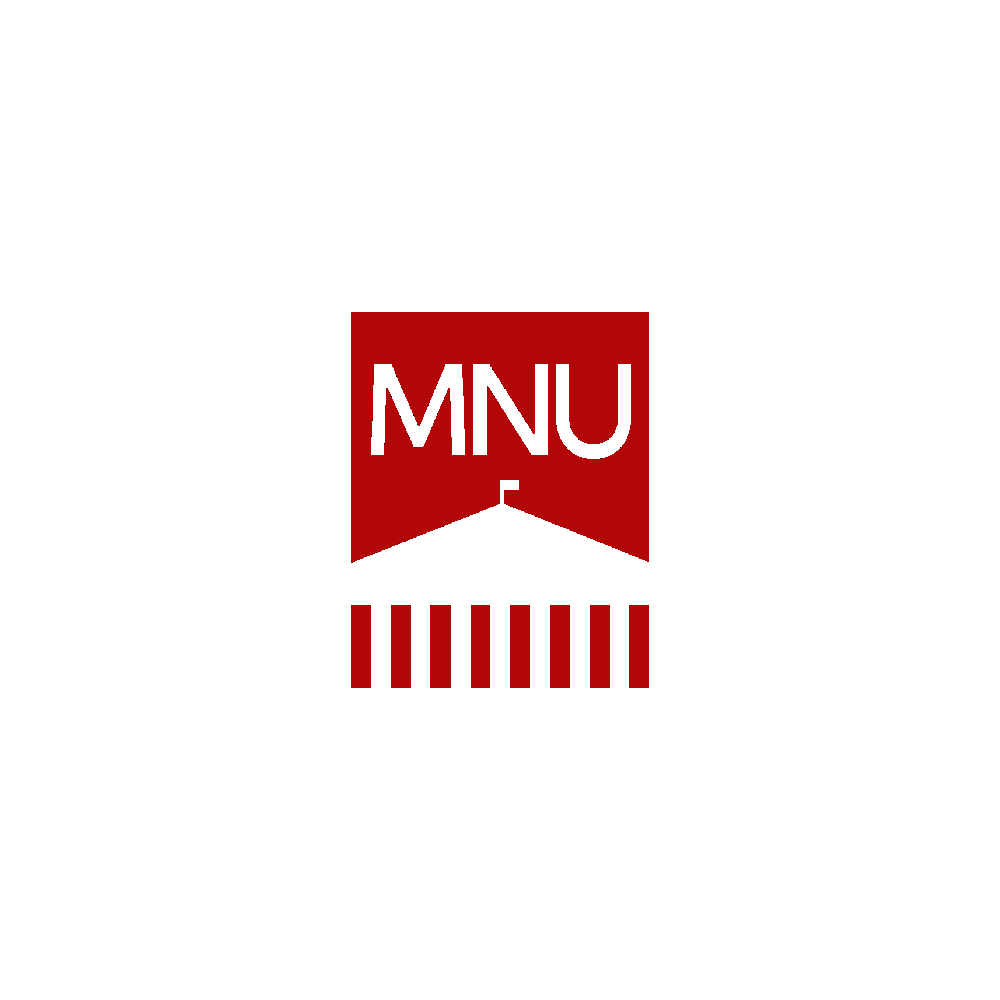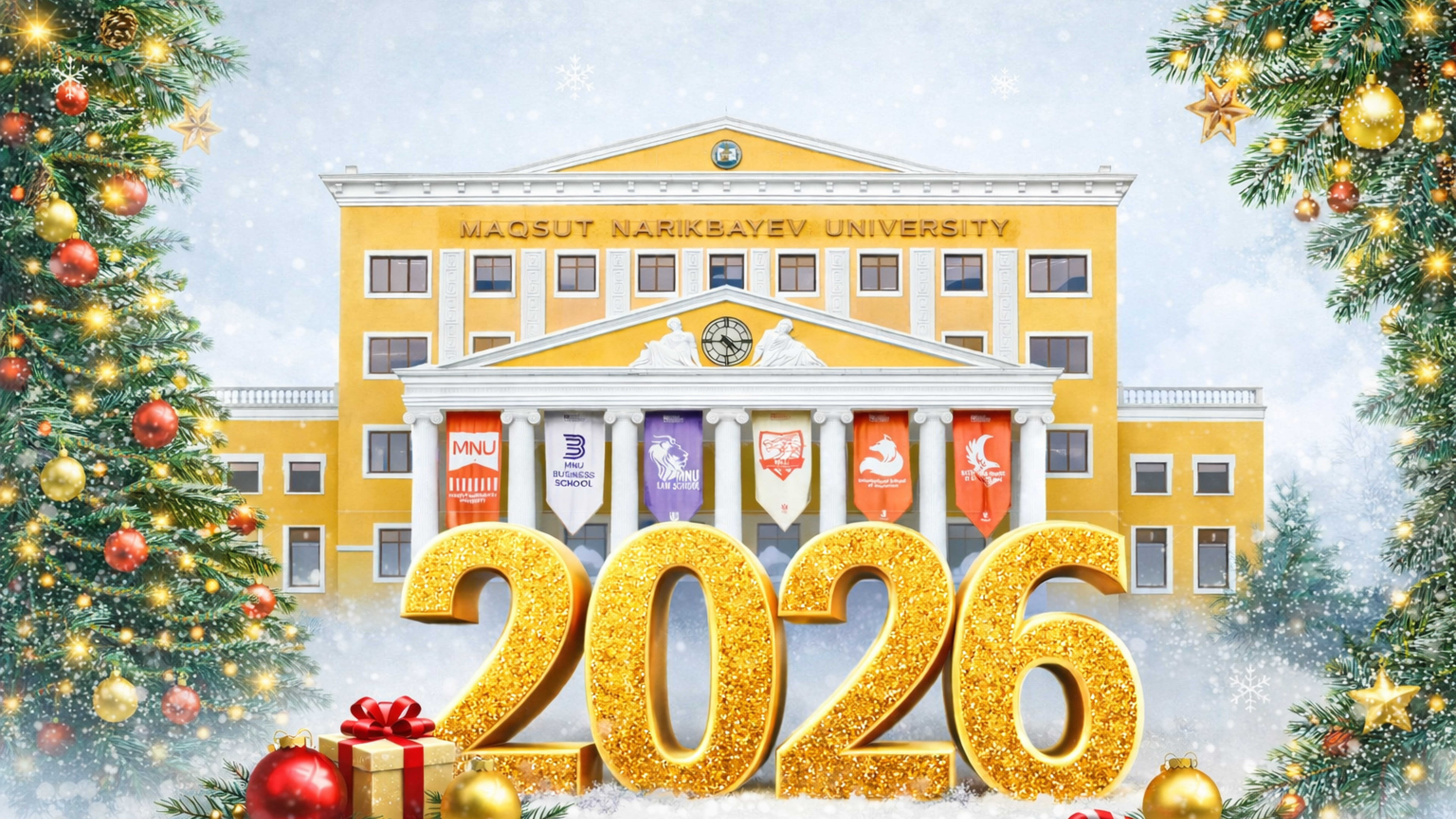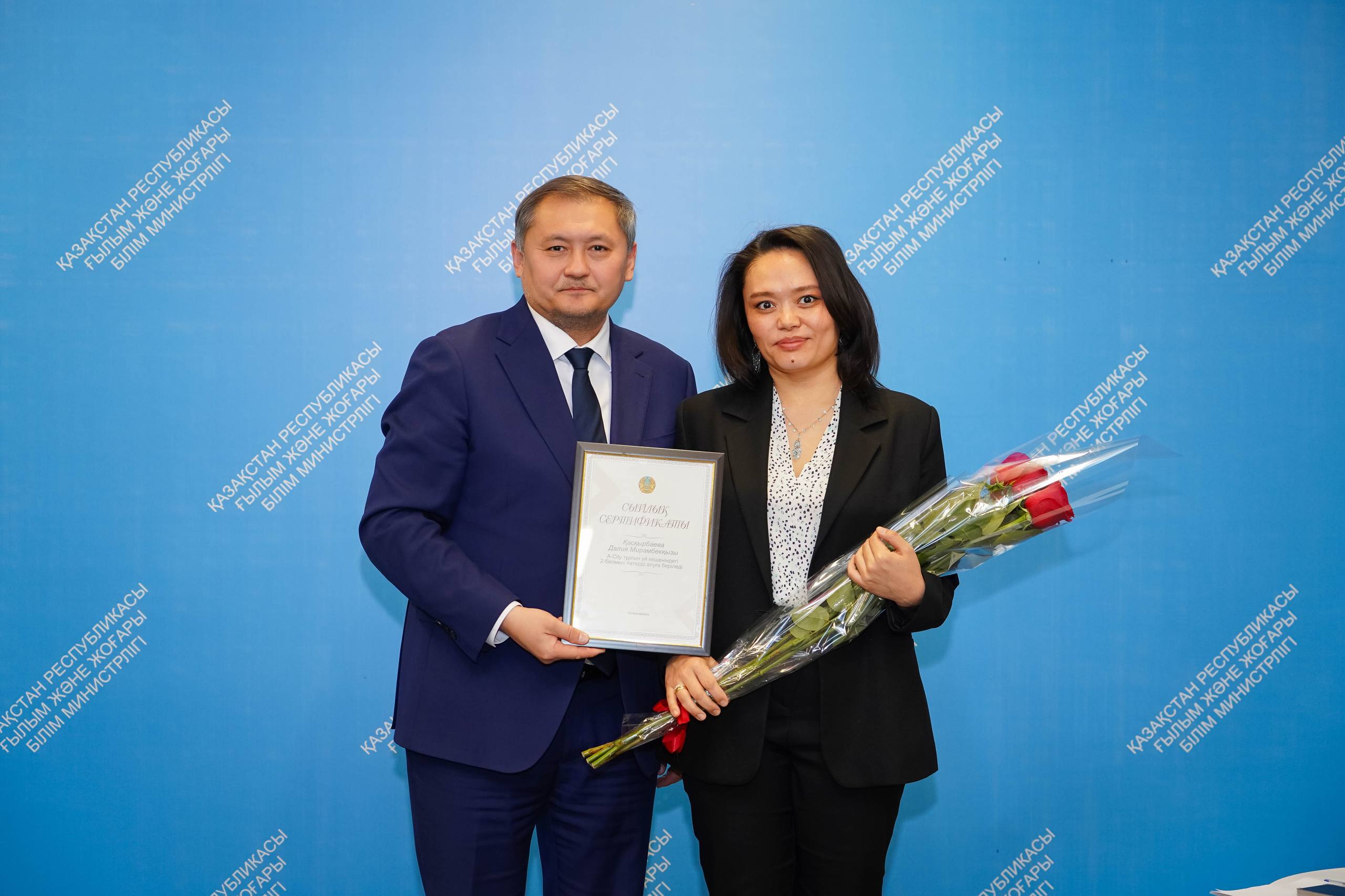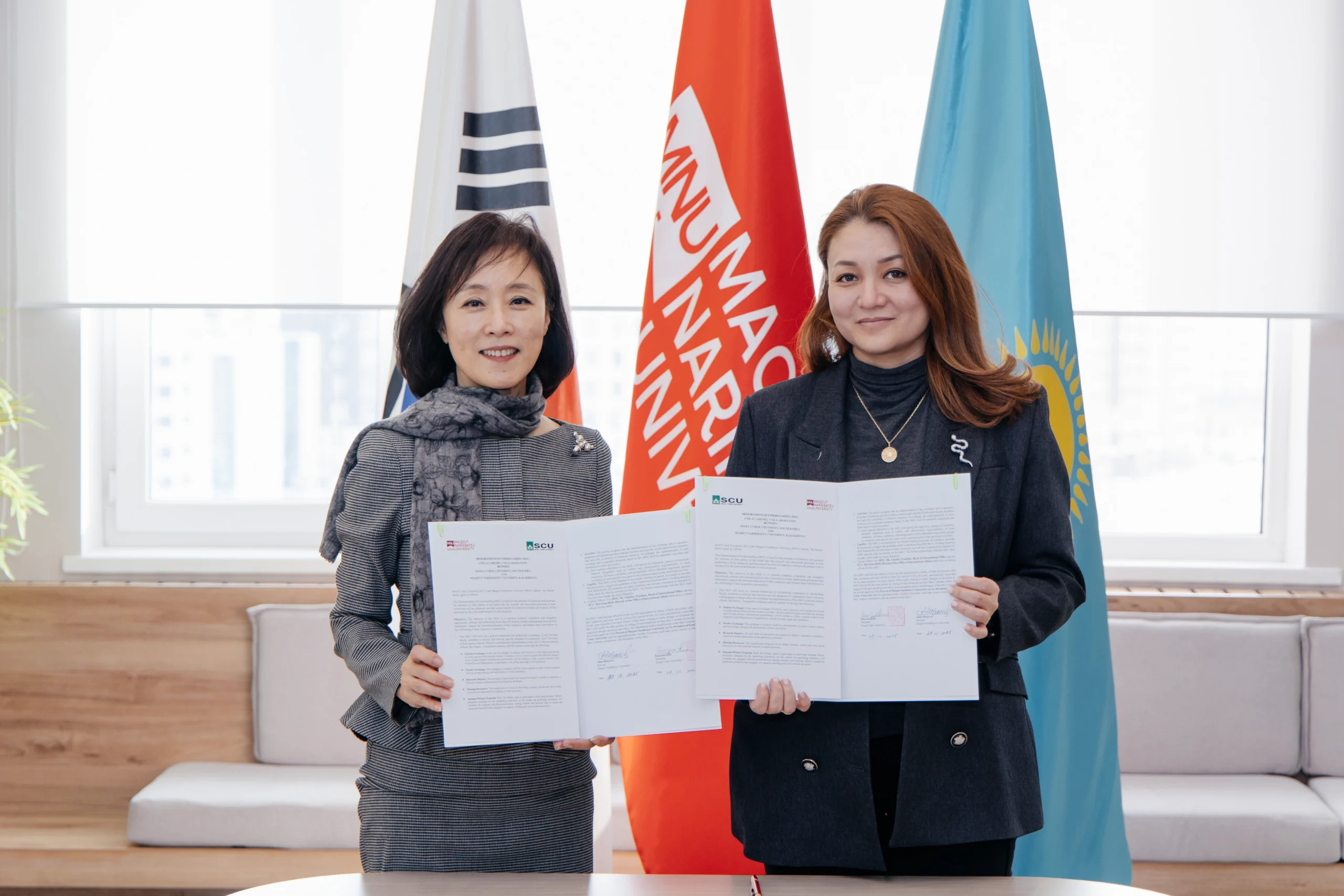In February 2024, the MIND Research and Analytics Center was established at Maqsut Narikbayev University (MNU). In a relatively short period, the Center has earned a notable reputation and has become a platform where meaningful change is initiated. In this interview, Aydin Abai, Head of MIND, discusses how the university extends its impact beyond the academic environment, contributes to national reforms, and builds bridges between academia, government, and society.
– Mr. Abai, it has been slightly more than a year since the public launch of MIND. Could you elaborate on the purpose behind the establishment of the Center and what has been accomplished to date?
– The establishment of the MIND Center is closely linked to the broader strategic development of Maqsut Narikbayev University, in particular its transformation into a research-oriented institution. Within this agenda, MIND’s mission is to strengthen the university’s research capacity and consolidate expert communities. We are committed to fostering a culture of data-informed and evidence-based decision-making, which, in our view, will facilitate the adoption of effective management decisions both by the state and by private sector stakeholders.
In response to your question, I would like to emphasise that we have accomplished a considerable amount of work within a short timeframe. Firstly, we have successfully positioned ourselves in the competitive field of applied consulting. Secondly, we have significantly expanded and continue to broaden our network of partners across government bodies, the business community, and the non-governmental sector, to which we attach particular importance. We see tremendous potential in the development of social projects at the university in collaboration with civil society organisations.
One of our most significant achievements is the strategic partnership we have established with the Senate of the Parliament of the Republic of Kazakhstan. At present, the MIND platform operates as the Public Project Office of the Senate, thereby enabling us to contribute to the enhancement of national legislation. Through well-structured and inclusive communication channels, we ensure that the views of a wide array of stakeholders are incorporated, particularly in relation to complex and pressing societal issues.
By way of illustration, I would like to mention the contributions of our colleagues, Professors Nikita Lyutov and Muslim Khassenov from the MNU Research School of Labour Law. Throughout the past year, they have provided expert support to the Senate’s working group on amendments to the legislation governing collective labour disputes. Constructive and, at times, intense dialogue with trade union associations, employer representatives, and the authorised government agency has culminated in a draft law that is expected to be adopted in the autumn of this year.
Another milestone has been the organisation of the first national Accelerator on the United Nations Sustainable Development Goals (SDGs). The unique methodology developed by the MIND Center facilitated the engagement of more than 200 volunteers and brought together a broad spectrum of stakeholders who collaborated in teams focused on six of the UN SDGs. These teams formulated recommendations for the Senate concerning legislative amendments, as well as the implementation of targeted initiatives and projects.
Each team was assigned a Senator, which ensured tangible political support for their work. As a result, the initiatives and recommendations developed by the Accelerator in the areas of local governance, quality assurance, rule of law, the right to decent work, education, healthcare, and sustainable urban development are now being actively pursued. Following the conclusion of the Accelerator, we published the SDG Impact Report 2024, and we intend to continue this practice on an annual basis.
We have also launched the MIND Analytical Report Series. Over the past year, in collaboration with research centres and schools at MNU, we published 14 analytical reports covering topics in law, economics, international relations, and the social sciences. These reports were presented to relevant governmental institutions and businesses. As a university-based think tank, we view it as our responsibility to promote university research to external stakeholders, making it more applied in nature and accessible to audiences beyond academia.
For example, one study addressed legal inconsistencies arising from the establishment of a new cassation court in Kazakhstan and proposed practical solutions. Other reports employed statistical modelling techniques — commonly referred to as artificial intelligence — to identify crime concentration zones in Astana and Almaty. These findings were well received by the Office of the Prosecutor General of the Republic of Kazakhstan, and other government agencies and private actors have expressed interest in continuing this line of work. Another study analysed the gender wage gap in Kazakhstan, revealing that in oil and gas-producing regions, the gap is more than three times higher than in other areas. We believe this should serve as a catalyst for income equalisation policies, which we have actively promoted among stakeholders.
Some of our research outputs are publicly accessible via our website, while others, due to their expert and confidential nature, are shared exclusively with relevant government partners. This approach reflects our principal objective: to ensure that policymaking is guided by robust data and analysis.
Finally, I would like to highlight our collaboration with the media. Within the framework of MIND, we hosted a press breakfast to present our research and conducted a training session for journalists. We remain open to all forms of cooperation with the media and are ready to provide expert commentary, analytical materials, and consultations.
– MIND is positioned as a think tank operating under the “Think & Do Tank” model. What distinguishes this approach from other similar structures?
– To begin with, the phrase may be interpreted as “think, analyse, and act.” What makes MIND unique is, above all, the applied nature of our research. What does this mean in practice?
We do not limit ourselves to purely academic work with researchers. From the outset, we prioritise the practical value of our research for our stakeholders. When discussing a new research initiative or project, the fundamental questions we ask are the following: What is the benefit to the country and society at large? What advantages does the project offer to the university and its partners? These considerations are central to our approach to policy research. This model remains relatively new in Kazakhstan, and we are committed to its active development.
Another essential element of MIND’s development model is its interdisciplinary character. Our research centres and academic schools collaborate to produce outcomes that are of real value to a wide array of partners — something that is often difficult to achieve in isolation. We have already had success with a major interdisciplinary project aimed at enhancing the clarity and accessibility of regulatory legal acts. This initiative drew on the expertise of both legal scholars and sociologists. In my view, it is precisely this kind of integrated, practice-oriented research that distinguishes MIND from other think tanks.
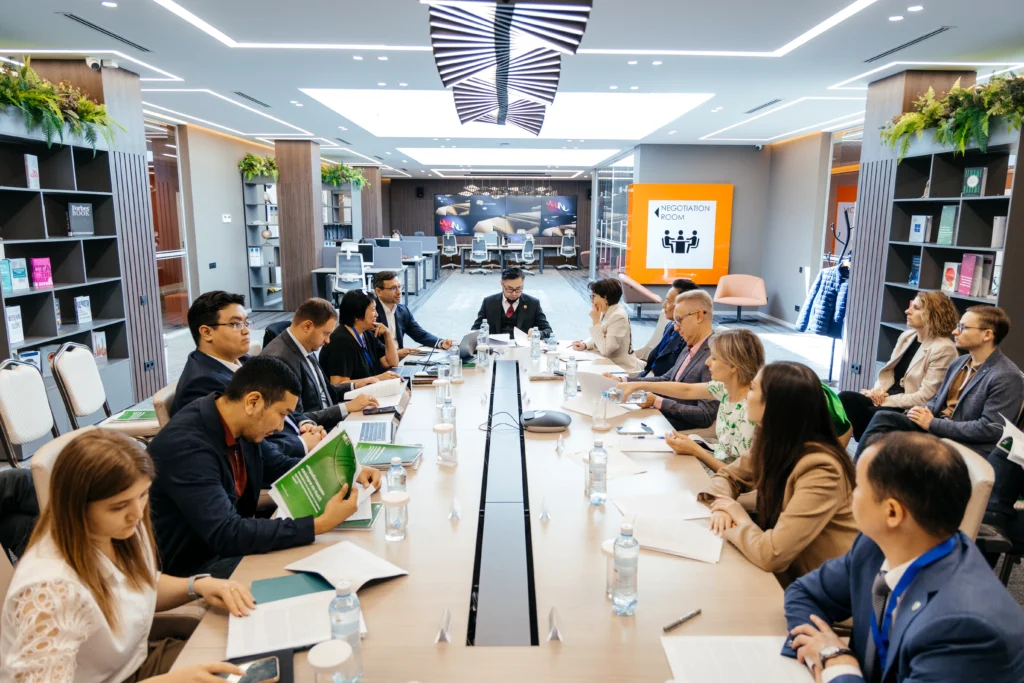
– President Kassym-Jomart Tokayev has repeatedly emphasised that universities must become engines of innovation. How do you see the future of science in Kazakhstan and its role in driving economic development? What, in your opinion, must government, business, and academia do to collaborate effectively toward this goal, and what role does MIND play in this process?
– We are living in an era in which science is no longer confined to books in a library — it has become a true driver of progress. As the President rightly notes, universities must be at the forefront of this transformation, generating new ideas and translating them into tangible innovations. In Kazakhstan, efforts are actively under way to ensure that science moves beyond the confines of academia and becomes an integral part of our economy and society.
Naturally, the development of science requires investment. In this regard, it is important to acknowledge the consistent efforts of the state — funding for science has been increasing year by year. At the same time, it is crucial to create incentives that will encourage the private sector to invest in scientific research.
What other conditions are necessary for the successful development of science?
First and foremost, scientific research must address the realities and needs of the present day. Researchers may produce remarkable work, but if their findings are not aligned with the demands of the public sector or industry, their potential will go unrealised. We must clearly articulate the key challenges facing the economy and society, so that science can offer concrete, applicable solutions. The new law on science and technology policy is intended to promote the integration of science into the economy by stimulating innovation.
Secondly, it is essential to cultivate a culture of partnership. We need effective platforms where researchers, business leaders, and public officials can meet, exchange ideas, and collaborate on joint projects. The principles of open science, active knowledge sharing, and cross-sector collaboration are critical for accelerating breakthroughs and facilitating the real-world implementation of scientific advances.
This is precisely where the role of MIND becomes evident.
It is no coincidence that MIND stands for the Maqsut Narikbayev Institute for Networking and Development. We view ourselves as a bridge between science and society, committed to advancing the values of synergy and collaboration.
Moreover, we do not merely study problems — we work to develop and implement practical solutions. To support this mission, the university actively encourages applied research. We are committed to increasing the number of university-based projects that are relevant and beneficial to government and business. We also assist in securing funding for such research and provide the necessary management and administrative support. This not only enhances the practical impact of our work, but also motivates our researchers to publish their findings in leading international academic journals.
– Recently, Maqsut Narikbayev University signed a memorandum of cooperation with the International Institute of Central Asia in Uzbekistan. What joint initiatives are planned with this leading research institution, and which areas of cooperation appear most promising?
– In responding to this question, I would first like to emphasise the important role of Maqsut Narikbayev University in both regional and global contexts.
Our university is widely recognised in Kazakhstan for its forward-looking approach to education, its innovative initiatives, and its commitment to international cooperation. MNU has earned international recognition through prestigious accreditations (QAA, FIBAA, ACCA, ICAEW, HRCI, CEEMAN, CIMA, IQAA, and GARP). Furthermore, we maintain a global network of more than 60 academic partner institutions.
With this robust academic foundation, a dynamic international presence, and a strong emphasis on sustainable development, Maqsut Narikbayev University is justifiably regarded as a leading institution of higher education in Central Asia.
It is our responsibility to build on this foundation. Following the directives of the Head of State, we see our mission as shaping the regional integration agenda through the advancement of science and collaborative research.
At the same time, as is well known, Central Asian countries face a number of common developmental challenges. Many experts identify regional security, economic development, water resource management, transportation and infrastructure, and climate change as the most pressing issues. Active collaboration in these fields could bring significant benefits to all countries of the region. The International Institute of Central Asia is a key partner in this regard, and joint consultations are currently under way. I would like to express my sincere appreciation to our distinguished colleague, Professor Ikboljon Qoraboyev of the International School of Economics, whose efforts were instrumental in facilitating this partnership.
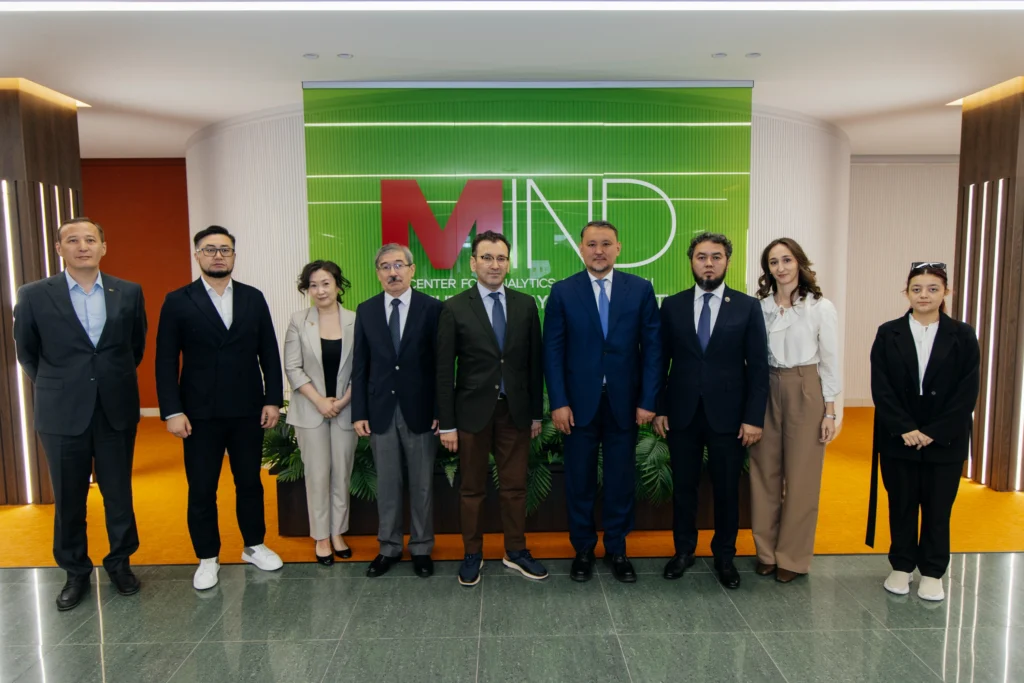
– One of the most impactful initiatives has been the MIND-Talks project, through which university professors and experts share their knowledge beyond the university walls. What is the aim of this initiative?
– In short, our goal is to make science accessible to all. We firmly believe that the university must be open to the wider community and should not isolate itself from society. If we examine the world’s leading universities — whether it be Yale in New Haven, Oxford, or iconic campuses such as the Latin Quarter and the Sorbonne in Paris, or Harvard University in Boston — we observe that they are not only centres of education, but also integral parts of urban life, shaping the cultural and even economic environments of their respective cities.
MNU is already actively moving in this direction. Allow me to mention just a few examples. For several years, the MNU community has been organising charity marathons, with the proceeds directed towards the medical treatment and support of students facing serious illnesses.
Our student organisations also actively engage with local schools. For instance, members of the Law Makers club have been working with high school students in the capital for the past two years. They share their knowledge and experiences on topics such as government and law, financial literacy, and legal awareness. The positive feedback from students continues to inspire and motivate our volunteers.
Of course, there is also our MIND-Talks project. Its central objective is to offer a platform through which MNU faculty members can present the results of their research in clear and accessible language. We seek to demystify complex academic subjects and make them comprehensible and relevant to the general public.
Here are a few examples of topics that have resonated strongly with the local community. Scholars from the International School of Economics, Elmira Mynbayeva and Nurzhanat Ametbek, delivered sessions on financial literacy and public relations in China. Dr. Anton Didikin gave a lecture on the philosophical concept of identity in the age of neuroscience. Professor Ikboljon Qoraboyev gave an insightful talk analysing the logic behind Donald Trump’s foreign and domestic policies. Dr. Nygmetzhan Kuzenbayev conducted a market simulation exercise that helped participants understand supply and demand dynamics and pricing mechanisms in a competitive economy.
Through these efforts, the university is gradually integrating itself into the civic and intellectual life of the city, fostering a community of individuals who are interested in science, nurturing new talent, and building meaningful connections. This is our contribution to the development of a scientific culture in society.
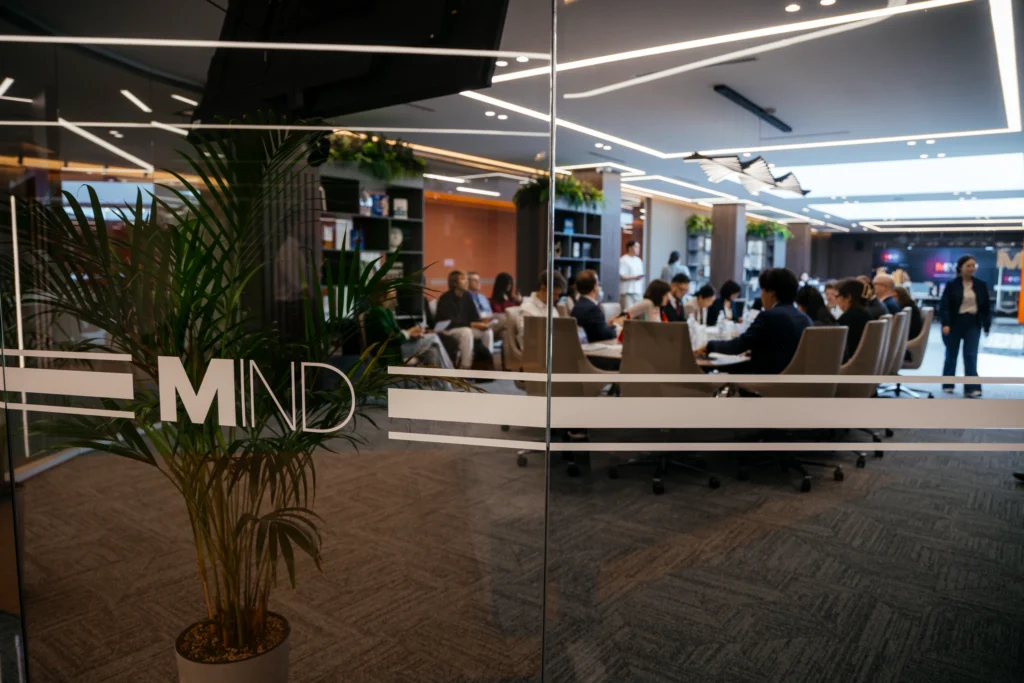
– You assumed the role of Head of the MIND Center two months ago. What are the Center’s plans for the future?
– MIND is currently undergoing a stage of transformation. The outcomes of our first year of operation have provided valuable lessons and insights. Following the completion of an internal audit, we have outlined specific steps for redesigning our internal processes.
In the medium term, we intend to prioritise the enhancement of the university’s research potential. We aim to achieve this through the introduction of new tools designed to support research initiatives. Beginning with the upcoming academic year, our researchers can expect several positive innovations that will serve as both motivation and support for their work. These initiatives are intended to further strengthen the university’s unique research ecosystem.
In our broader vision, MIND should evolve into a fully-fledged Research Support Center, and we are committed to making every effort to realise this goal.
Another strategic priority is the development of consulting competencies based on the expertise housed within our research schools and centres. We aim to integrate into the global network of consulting projects undertaken by international financial institutions. Together with our partners, we are prepared to offer turnkey consulting solutions across a wide array of topics — including legal, economic, and social research, as well as international relations and global security. These services will be available internationally and tailored to the specific needs of clients.
We also remain committed to promoting the global sustainable development agenda. At present, we are actively collaborating with our partners to organise the second MIND Accelerator. This edition will be dedicated to the achievement of Sustainable Development Goal No. 16: Peace, Justice, and Strong Institutions — specifically focusing on the Rule of Law.
– Thank you for providing such a comprehensive overview.
